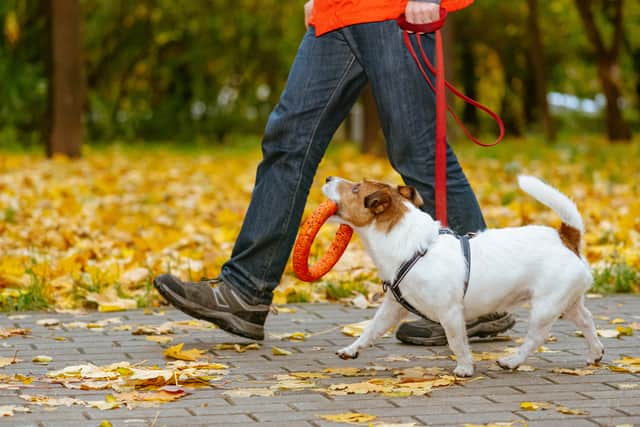Vet’s warning for dog walkers as bird flu case confirmed in Bristol
and live on Freeview channel 276
A Bristol vet has sent out a warning to dog owners and the public after a case of bird flu was confirmed in the city.
Vets4Pets in Filton advised dog owners to keep their pets on a lead following the confirmed case at Blaise Castle, where a sign was spotted urging walkers to take precautions.
Advertisement
Hide AdAdvertisement
Hide AdA statement on the the vet’s Facebook page read: “The advice is do not touch or pick up any dead or visibly sick bird that you find. It is advisable to keep dogs on leads to prevent them finding injured or dead birds.


“If you find dead wild waterfowl (swans, geese or ducks) or other dead wild birds, such as gulls or birds of prey, you should report them to the Defra helpline.”
The surgery added that as a result of the outbreak, it was currently not accepting any wild birds into the practice.
Bristol Rescue Animal Centre also said it was unable to take any wild birds ‘for the forseeable future’.
Advertisement
Hide AdAdvertisement
Hide AdWhat is bird flu and how can it affect pets?
Bird flu, or avian flu, is an infectious type of influenza that spreads among birds. In rare cases, it can affect humans.
While the risk to pet dogs from bird flu is very low, dog walkers have been warned to be extra cautious around coastlines and wildfowl.
There have been reports of foxes getting bird flu – and while many birds are carrying bird flu, they can also be carrying other diseases that could also be passed on to your pet.
There is also a concern domestic pets may spread the virus further either on their coat or by stepping through infected bird droppings and transferring or spreading it.
Advertisement
Hide AdAdvertisement
Hide AdDomestic cats in Europe also appear to have become infected by eating infected poultry or wild birds.
If your dog eats a stick or dead bird infected with bird flu viruses, they could become infected with bird flu.
If your dog is showing symptoms compatible with bird flu virus infection such as fever, panting and fatigue and has been exposed to infected (sick or dead) wild birds/poultry – then you should monitor its health and contact your vet.
For more information on bird flu visit the gov.uk website.
Comment Guidelines
National World encourages reader discussion on our stories. User feedback, insights and back-and-forth exchanges add a rich layer of context to reporting. Please review our Community Guidelines before commenting.
